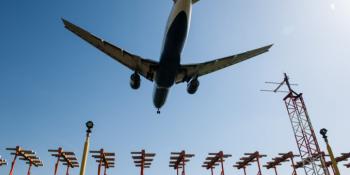NATS
Biggest airspace change ever implemented in the UK
NATS introduces FRA enabling shorter routes as a key driver in delivering ‘net zero by 2050’
GANS and NATS Middle East sign strategic agreement
Global Air Navigation Services (GANS) and NATS have signed a strategic framework agreement supporting customers operations across the Middle East.
NATS lands Heathrow 5-year contract extension
Heathrow Airport has extended its strategic partnership with NATS and the current contract will now run through to April 2030.
FREQUENTIS Orthogon supports the Airport Operations Plan
The Demand Capacity Balancer (DCB) provides a powerful digital twin of the airport operations to make it more efficient and resilient to disruptions
NATS declares emissions lows and charitable giving highs
NATS has accelerated its estate net zero targets from 2050 to 2035, highlighted in its annual Responsible Business Report
FREQUENTIS strengthens strategic partnership with NATS
FREQUENTIS strengthens position with NATS through the acquisition of L3Harris Technologies Inc. ATC Solutions business unit and Orthogon
Propelling the application of artificial intelligence in air traffic control
UK government backed grant announced for new five-year strategic partnership to help propel application of artificial intelligence in air traffic control.
London City airport controlled by remote digital tower
London City Airport has become the first major international airport in the world to be fully controlled by a remote digital air traffic control tower
SESAR partners successfully validate solution to delegate air traffic services
SESAR partners successfully validate solution to delegate air traffic services
DFS, NATS and skyguide discuss digitalisation as the future of ATM
ATM attended a virtual discussion including DFS, skyguide and NATS, considering the technological future of ANSPs in Europe.
NATS report charts further environmental progress
Air traffic controllers at NATS helped enable more than 30,000 tonnes of CO2 savings during the past financial year through the greater use of direct aircraft routings, smoother climbs and descents and the more efficient use of airspace.









